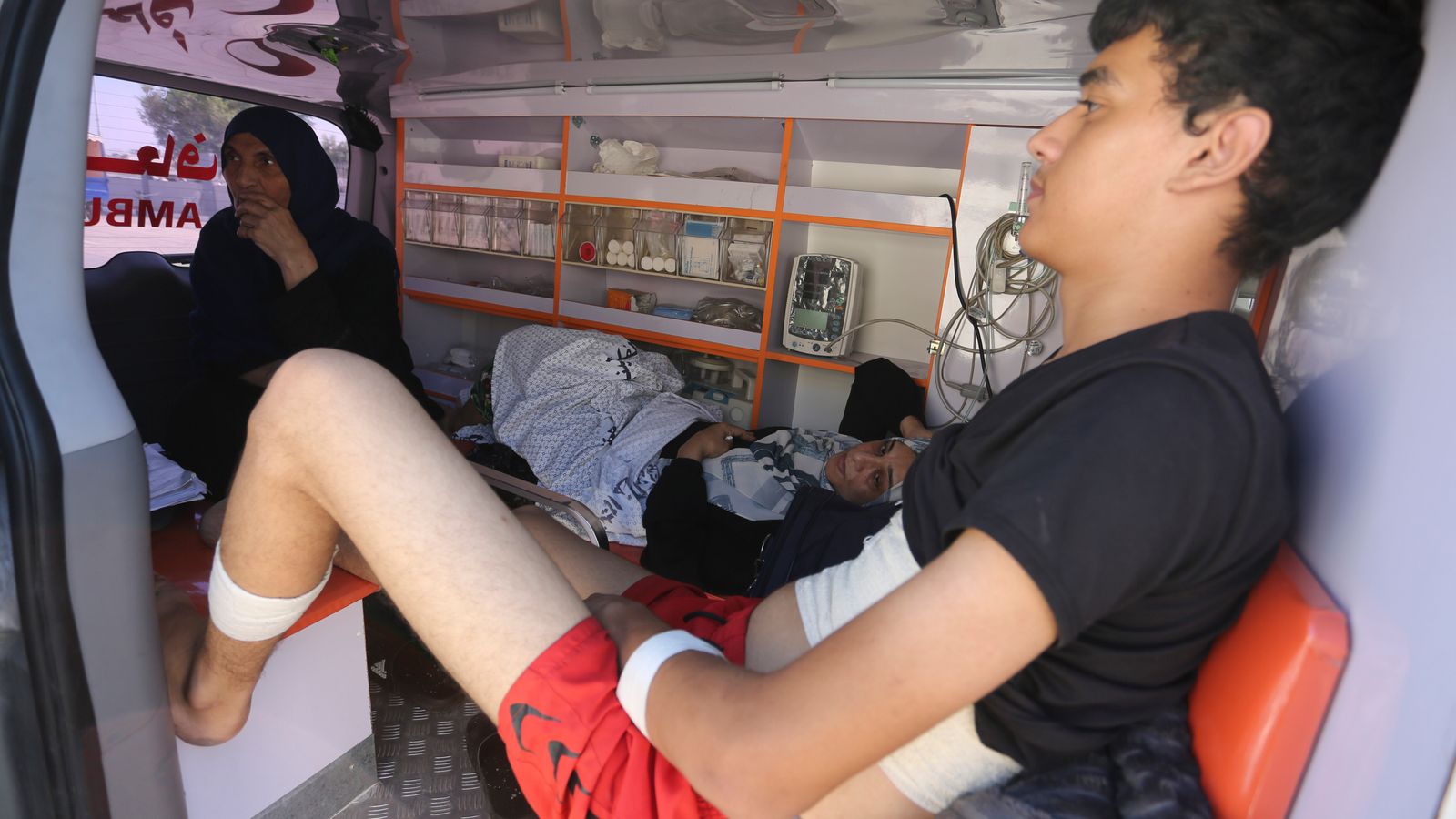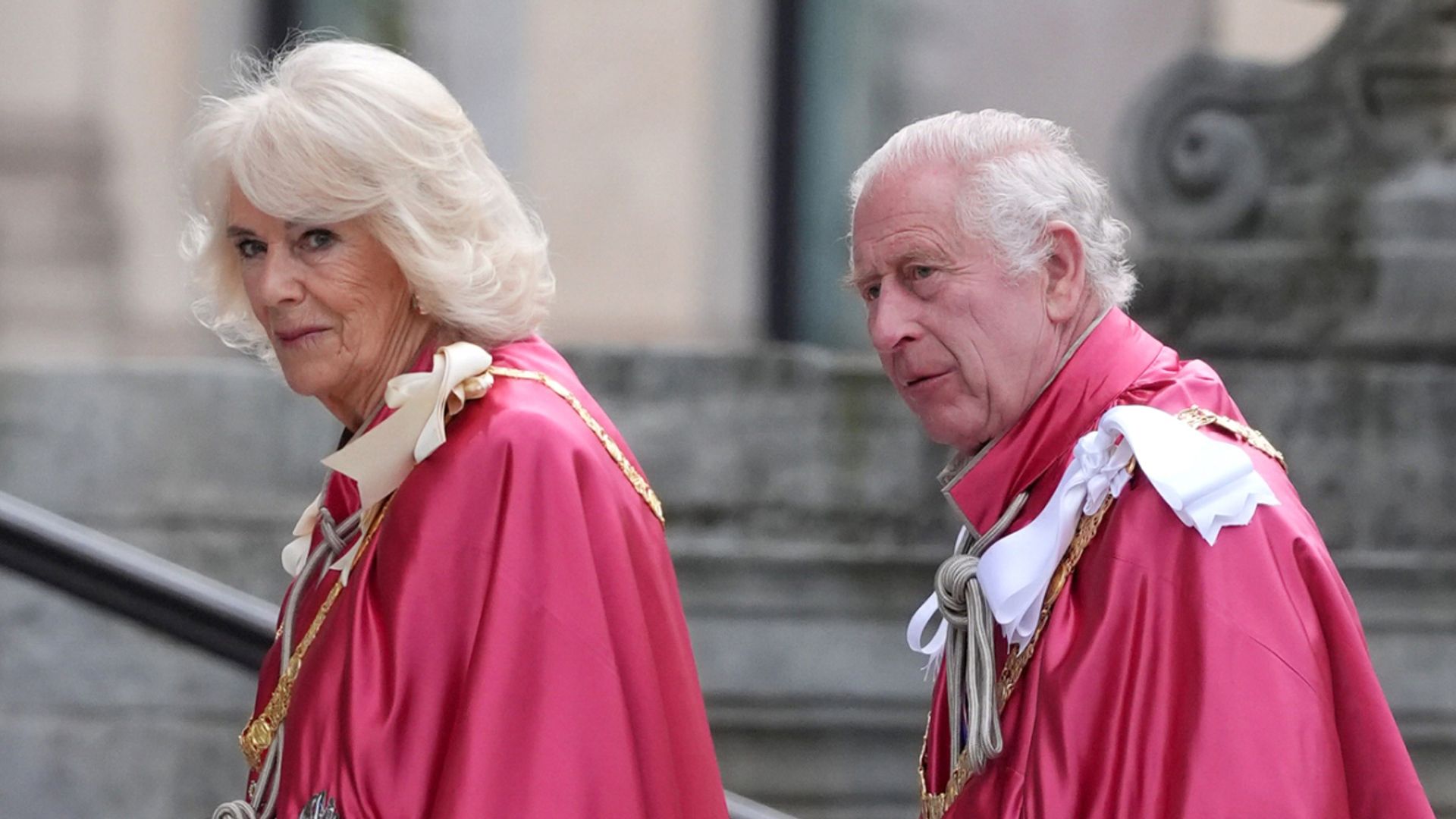The rows of ambulances in Gaza started moving towards the border crossing into Egypt from Wednesday morning.
Inside were some of the most critically wounded from the recent Israeli onslaught on the territory and this was the first chance for anyone to escape the hell of what is happening in the Palestinian enclave.
In the emergency convoy, there were 76 people – among them women, the elderly and children.
The breakthrough comes after frantic discussions mediated by Qatar and the United States – and agreed by Egypt, Israel and Hamas.
We managed to get through to one doctor in Khan Younis in the south of Gaza, who’d had the difficult job of selecting 18 of his most seriously ill patients to make the crossing.
Israel airstrike on refugee camp ‘may be war crime’ – live updates
Dr Youssuf Al Akkad, from the Gaza European Hospital, told us that his group was made up of 60% men and 40% women and included some children.
Most of the patients were suffering from brain injuries, spinal cord wounds and eye complications, and need specialist treatment that his hospital cannot provide.
“We are in a desperate state,” he said. “This is really a war on children, with most of the dead and injured made up mostly of women and children.”
He told us that his own hospital was in danger of running out of fuel supplies in a matter of days and he had at least a further 30 people who needed to be immediately taken across the border for medical help.
“We hope this will happen in the coming days,” he said.
The evacuation operation is being carried out under heightened security. We saw rows of tanks and military hardware on the Egyptian side on the route to the Rafah crossing when we were in the area.
The casualties are being taken to nearby hospitals in the north Sinai area, including Al Arish Hospital, and Egyptian state TV showed pictures of some of the wounded, including a young boy, being stretchered inside by medics.
The Palestinian side of the Rafah crossing was besieged by people, mostly foreign nationals, trying to escape the Israeli bombardment.
Read more:
Britons among hundreds of foreign nationals crossing border
What is the Rafah border crossing and who controls it?
How far has Israel got into Gaza?
Please use Chrome browser for a more accessible video player
Strikes on refugee camp continue
The evacuations were carried out amid continued Israeli airstrikes – including on the Jabalia refugee camp, the largest in Gaza – for the second day in a row.
Sky News verified the geolocation of pictures put out by Hamas which indicated the second day’s strike was inside the camp but in a different location to Tuesday’s attack.
Please use Chrome browser for a more accessible video player
The images showed bloodied women and children as well as many men clambering over rubble, being pulled out of debris and carried into hospitals.
Israel says the refugee camp is a stronghold of Hamas fighters and commanders and announced it had lost 16 of its soldiers in combat over the past few days since its ground offensive into Gaza began.
Social media showed multiple pictures of Knesset members crying as they emerged from a meeting.
But amid the bombardment, a Hamas official said the hostages being held by them were under the same threat of death and injury that Palestinians are facing, and claimed an unspecified number of captives they were holding had already died in Israeli attacks.
Foreign nationals also starting to get out
At the Gaza-Egypt border, about 500 dual nationals have been put on a list approved by the five different governments involved for evacuation, as well as the wounded we saw earlier.
About 44 different nationalities – including some Britons – have been trapped inside Gaza since the 7 October atrocities mounted inside Israel by Hamas which saw more than 1,400 people killed and about 240 taken hostage.
Click to subscribe to the Sky News Daily wherever you get your podcasts
The UK Foreign Office confirmed British nationals were able to cross into Egypt but they declined to say how many.
The announcement that the crossing would be opened prompted crowds to surge towards the border point – now the only exit route possible since Israel imposed a siege on the territory, cutting off electricity and water and limiting aid trucks into the area.
For the second time in more than three weeks of bombardment, Palestinians also reported internet and mobile phone networks were interrupted as the border was opening.
Being desperate to get out is understandable.
But those who were not on the list were not allowed over.
Please use Chrome browser for a more accessible video player
Please use Chrome browser for a more accessible video player
Be the first to get Breaking News
Install the Sky News app for free
They included a mother from Manchester called Emilee Rauschenberger who has been stranded inside Gaza with her five children after travelling there to visit relatives.
She said her children were aged between 14 and four years old.
“We had no electricity… the food we had to go and find each day, water stopped so there’s no sanitary water,” she told the Sky News crew in Gaza. “We had to go find the drinking water… it’s very difficult.”
The Egyptian authorities say the crossing will be opened for limited periods to allow those on the approved list to move into Egypt.








